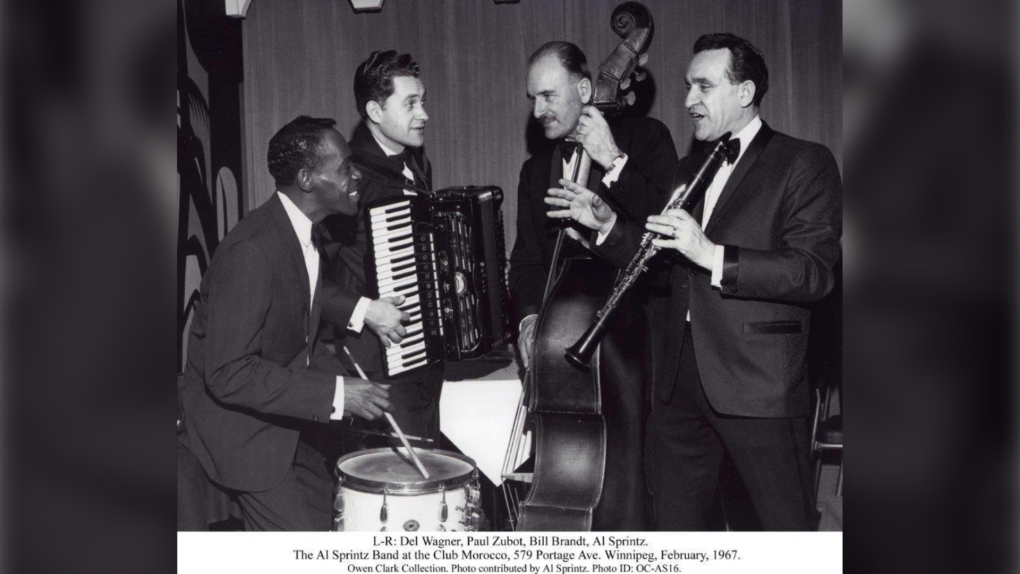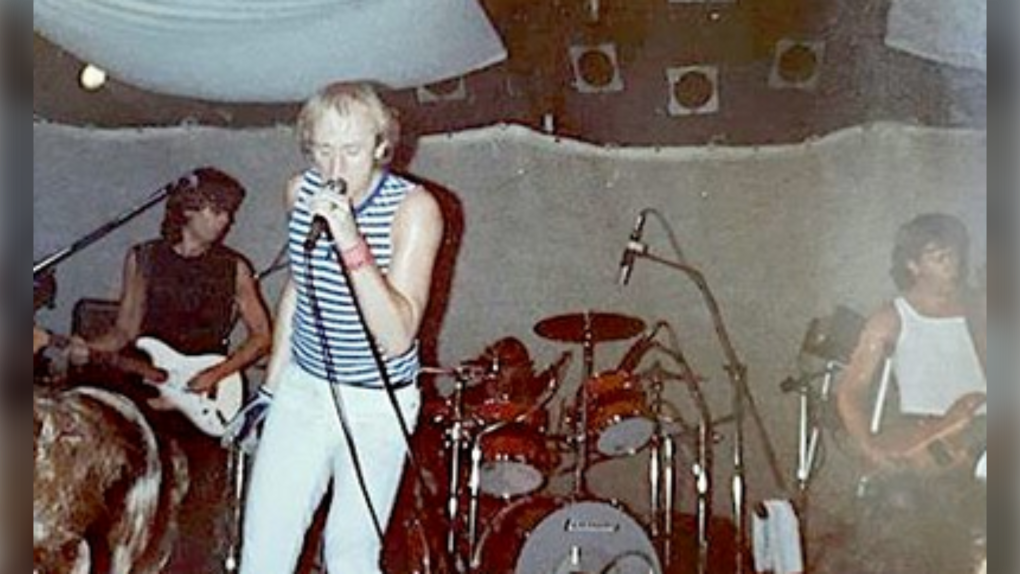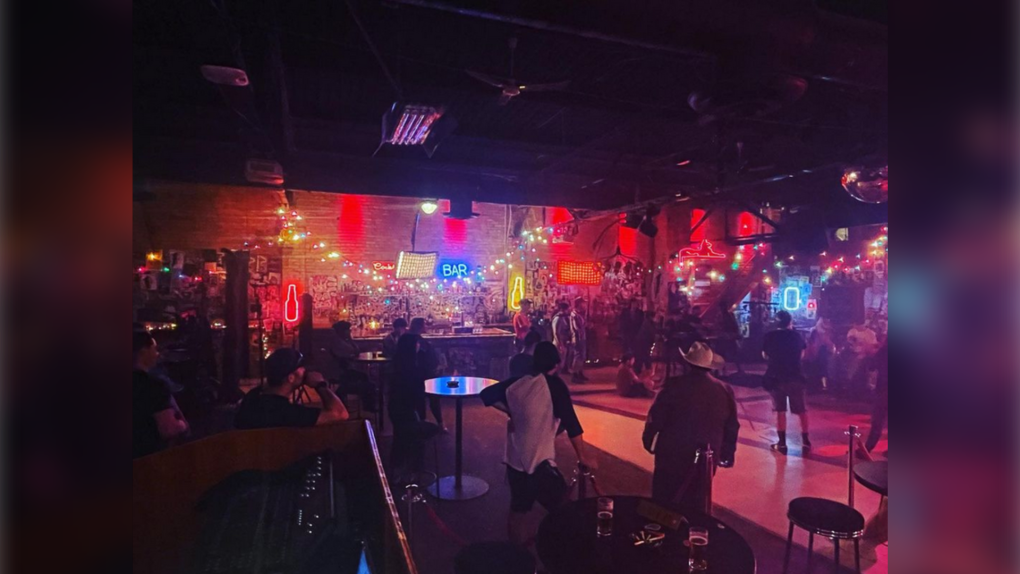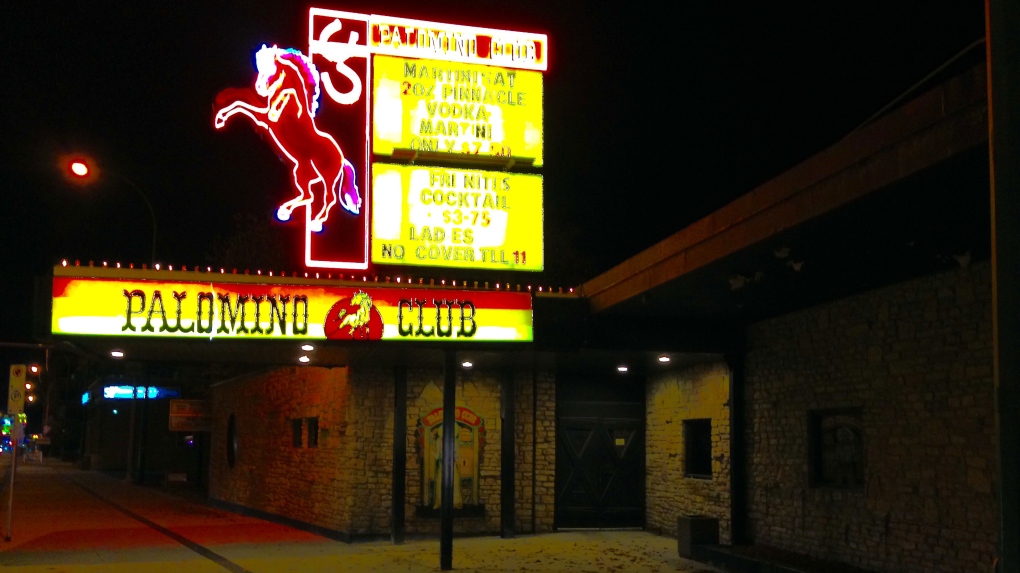From Scandals to The Pal, a look back at storied Winnipeg bars and clubs that have come and gone
The Winnipeg bar and nightclub graveyard is riddled with favourite haunts that have come and gone in a blaze of strobe lights and thumping subwoofers.
Just this week, the Good Will Social Club shut its doors after 10 years of live music, ‘90s dance parties, and drag bingo games.
The beloved watering hole inspired CTV News Winnipeg to take a look at some of the many bars and nightclubs that have come and gone over the decades, and the sometimes faded memories they left behind.
Club Morocco
Opened in 1954 by Polish immigrant Harry Smith, Club Morocco was a legendary Portage Avenue jazz club that saw the likes of George Reznik and the Al Sprintz Band perform against a backdrop of faux African jungle décor.
“It just seemed to have an air of danger about it,” said music historian John Einarson, who researched the city’s storied live music venues for his book ‘Heart of Gold: A History of Winnipeg Music.’
“You didn't mess around when you went there and you behaved yourself, but it was a great place for Winnipeg musicians to play and a great place to see a lot of jazz performers.”
It held on for decades, changing styles and formats to survive before closing in the 80s.
The historic building that housed it at the corner of Portage Avenue and Langside Street dubbed the Kirkwood Block met a fiery fate when it burned down in February of 2022.
“It's another landmark from our music history and our cultural history and Winnipeg that we’ve lost, but a funky, great place,” Einarson said.
 (Source: John Einarson)
(Source: John Einarson)
The Town N’ Country
The Town N’ Country was perhaps Winnipeg’s top supper club in the 1950s and the mid-60s.
Located at 317 Kennedy Street, it housed three levels with a restaurant on the main floor, a lounge on the second, while the top level was coined The Towers.
“That’s where we got the top entertainment coming through - Rosemary Clooney coming in performing there, for example,” Einarson said.
A 19-year-old Barbra Streisand also performed there. The experience, however, appeared less than gorgeous for the budding star. Einarson says she was fired after three days by the club manager over a struggle to connect with the audience.
The St. Vital Hotel Pub
The 1970s brought a shift in Winnipeg nightlife, as the trendiness of the big dance clubs faded, giving way to a rise in pub popularity. Perhaps not coincidentally, Manitoba’s drinking age was lowered in 1970 to 18.
Enter the pub at the St. Vital Hotel on St. Mary’s Road.
“I remember in the ‘70s walking in there and as soon as you opened the door, a big waft of marijuana smoke. It was a fairly liberal kind of a place.”
It was far from the only pub-style offering. The Plaza Hotel, which became The Zoo, The Westminster Inn, The Village Inn and The Norlander Motor Hotel all hosted newly legal patrons, enjoying live rock ’n’ roll music and plenty of libations.
 Streetheart performs at The Norlander Motor Hotel in 1983. (Source: Streetheart/Facebook)
Streetheart performs at The Norlander Motor Hotel in 1983. (Source: Streetheart/Facebook)
Scandals Nightclub
The Norlander also became the setting for one of Winnipeg’s most popular nightclubs in the late ‘80s and ‘90s, as DJs and their turntables replaced many live music acts.
When it first opened its doors at the Pembina Highway hotel, DJ Brian St. Clair says Scandals Nightclub was trendy among 18 to 24-year-olds looking to listen to the likes of Depeche Mode, The Cure and The Smiths.
But that wasn’t always the case.
“It changed formats several times, so the Scandals that was around in the late ‘80s was not the same Scandals that was around in the early 2000s when it changed names,” he said.
“Even into the early ‘90s, it played more on the edge music. It drifted into becoming more of a top 40’s club starting in the mid-‘90s.”
DJ Vance Masters was also on the ones and twos at Scandals in its heyday, in addition to The Roxy and Wise Guys.
“Ten cent draft night was Thursday at Scandals,” he recalled.” I remember we used to go into price wars with Monty’s on Pembina Highway and we would go down to 99 cent drinks - whatever you wanted. Beer, spirits, shooters, but the most you ever paid was $3.75”.
The Spectrum/Pyramid Cabaret
Live music still found a home in 1988 at The Spectrum Cabaret, which people know today as The Pyramid.
Housed in an old garage on Fort Street, it was one of the top rooms for live rock music in the city.
The likes of Goo Goo Dolls, Quiet Riot and Echo & the Bunnymen have performed there over its decades-long tenancy.
The Spectrum closed in 1994 and reopened as The Pyramid in 1995 where it’s still going strong.
 (Source: Pyramid Cabaret/Instagram)
(Source: Pyramid Cabaret/Instagram)
Die Maschine Cabaret
The club that St. Clair has perhaps the fondest memories of opened in the heart of Osborne Village in 1995.
The two-level venue hosted a DJ on each storey. The ground level pumped out commercial, top 40’s hits to an eager dancefloor, while the alternative crowd headed for the second floor.
St. Clair managed the club from 1996 to 1999.
He recalls sleeping in the DJ booth once during a blizzard.
“Customers would view it as home. It was just strange,” he said.
“There was a Monday night family feeling because the so-called alternative crowd knew each other, but Die Maschine took it to a new level.”
Zaxx and The Diamond Club
Those looking to dance in the ‘90s could head to Zaxx at the Garden City Inn or go next door to The Diamond Club for live music.
“I knew the DJ at Zaxx,” St. Clair said. “I was working at Scandals at the time. We used to actually compete with each other trying to get the newest music.”
The World Famous Palomino Club
It wouldn’t be right to talk about Winnipeg clubs without a mention of The World Famous Palomino Club.
Opened in 1988, the original Portage Avenue location was instantly recognizable by its glowing neon horse welcoming country music fans for a night of honky-tonk fun.
Unless, of course, you were there on No Country Mondays, in which case you’d sip your drinks and dance to pop radio hits.
“This is where true country fans along with ‘weekend cowboys’ could scoot their boots to the finest Manitoba-grown country music,” Einarson said.
Other notable country bars of the era – Silverados, Ma’s Corral, and Teddy Bob’s.
Of course, the Pal has since moved locations, after its original Portage Avenue site was demolished in 2016 to make room for condos.
The new location is under new ownership at 436 Main Street, the former Bank of British North America. The towering building has also previously housed several other bars including Whiskey Dix and The Empire Cabaret.
 The Pal opened in 1988 on Portage Avenue as a predominantly country bar and over its years has attracted many celebrities, professional athletes and even hosted weddings for customers who met there.
The Pal opened in 1988 on Portage Avenue as a predominantly country bar and over its years has attracted many celebrities, professional athletes and even hosted weddings for customers who met there.
Honourable Mentions (in no particular order)
- Club Soda
- Royal Albert Arms
- The Zoo
- Gio's Club and Bar
- Blush Ultraclub
- Mardi Gras
- The Blue Note
- Coconut Joe’s
- Rorie Street Marble Club
- Bullwinkles
- U4IA
- Le Rendez-Vous
- The Avenue
- Rum Jungle
- Buffalo Bill's Saloon
- The Fireplace
- Coyotes
- The Ranch
- Club Desire
- Wellington's
- Rolling Stone Cabaret
- Brandy's
- Strawberries
- Area Nightclub
- 8traxx
- DeSoto's
- Norma Jean's Nite Club
- Monty's
- Night Moves
- Grapes On Main
- Bogart's
- The Palladium Bar & Nite Club
- Club Happenings
- Golden Nugget
- The Black Knight
- Mustang Sally's
- Koko's
- The Golden Oak
- Miss Purdy’s
- Tijuana Yacht Club
- The O.C.
- Uncle's
- Boogie Nights
- The Glass Onion
- Country Corral
- The Pandora
- Dayton's
- The Green Room
- Alive in the District
- The Banana Club
- Riverside Roxy
- The Brass Rail
Did we miss one or several? Feel free to email us and let us know.
CTVNews.ca Top Stories

Families of Paul Bernardo's victims not allowed to attend parole hearing in person, lawyer says
The families of the victims of Paul Bernardo have been barred from attending the serial killer’s upcoming parole hearing in person, according to the lawyer representing the loved ones of Kristen French and Leslie Mahaffy.
'Bomb cyclone' batters B.C. coast with hurricane-force winds, downing trees onto roads and vehicles
Massive trees toppled onto roads, power lines and parked cars as hurricane-force winds battered the B.C. coast overnight during an intense “bomb cyclone” weather event.
'I'm sure Randy can answer': Liberal MPs defer to Boissonnault, PM Trudeau amid resignation calls
As the Indigenous claims controversy surrounding Randy Boissonnault continues to unfold, his colleagues are deferring questions about the embattled cabinet minister to him, and the prime minister.
'They squandered 10 years of opportunity': Canada Post strike exposes longtime problems, expert says
Canada Post is at ‘death's door’ and won't survive if it doesn't dramatically transform its business, a professor who has studied the Crown corporation is warning as the postal workers' national strike drags on.
BREAKING Canada closes embassy in Ukraine after U.S. receives information on 'potential significant air attack'
The Embassy of Canada to Ukraine, located in Kyiv, has temporarily suspended in-person services after U.S. officials there warned they'd received information about a 'potential significant air attack,' cautioning citizens to shelter in place if they hear an air alert.
U.S. woman denied parole 30 years after drowning 2 sons by rolling car into South Carolina lake
A parole board decided unanimously Wednesday that Susan Smith should remain in prison 30 years after she killed her sons by rolling her car into a South Carolina lake while they were strapped in their car seats.
Leon's, The Brick under investigation for alleged 'deceptive marketing'
Popular furniture and appliance retailers Leon's Furniture Limited and its subsidiary, The Brick Warehouse LP, are under investigation for alleged 'deceptive marketing.'
Burlington, Ont. woman accused of accepting money for fake Taylor Swift tickets
As Taylor Swift is set to perform her final three sold-out shows at the Rogers Centre this week, many people who have fallen victim to an alleged ticket scam are trying to find answers to what happened.
Calgary gorilla died after being hit by a door: officials
The Calgary Zoo says its two-year-old western lowland gorilla named Eyare died after being hit by a hydraulic door at the rear of the exhibit.


































